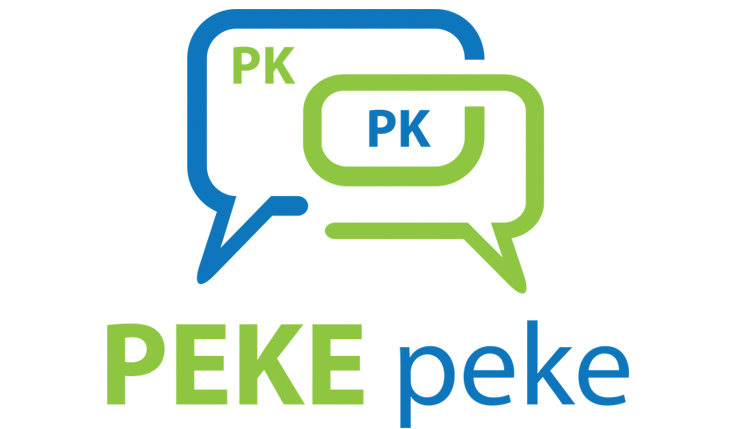Namibia woke up to a nightmare: Telecom Namibia, our national telecommunications provider, got hacked.
Does this government now believe us when we say we don’t trust these companies with our information? Do the authorities now understand why we refused to register our SIM cards? We told you so, dammit!
Sensitive data has been dumped on the dark web, leaving our personal information, and probably even the president’s call logs, in the hands of cybercriminals.
Telecom initially assured us that “no personal data was breached” – now the story has evolved into “we do not negotiate with terrorists”.
Translation – they have no idea what they’re doing.
This is what happens when you run tech departments like a tribal council meeting. Instead of employing curious minds who think in code and dream in algorithms, we’ve opted for PhDs and MBAs who can barely cobble together a ‘Hello World’ program.
These academic types are great at reciting Latin-sounding terms and writing essays on ‘Optimising Cybersecurity Frameworks’, but put them in front of a real-world hacking crisis and their expertise vanishes faster than a free Wi-Fi signal in Khomasdal.
DELINQUENTS VS ACADEMICS
Let’s be real: the kind of person who can stop hackers is not the guy with a framed degree from the Namibia University of Science and Technology or the University of Namibia. It’s the kid in a tattered hoodie sitting in Zoo Park, chain smoking and typing furiously on a second-hand laptop. He’s not there to enjoy nature; he’s there to break rules – because rules are made to be broken.
This delinquent doesn’t have an MBA. What he has is curiosity, tenacity and a desire for chaos. He’s the kind of person who doesn’t read the manual, but rewrites it for fun.
Meanwhile, our companies are staffed with suit-wearing academics who prefer PowerPoint over Python. They’ve got degrees, sure, but what they don’t have is the mindset. Hackers are rule-breakers by nature. They thrive on the thrill of dismantling systems, and they’re laughing all the way to their encrypted wallets because Namibia has no equivalent minds on payroll – public or private.
The type of information technology (IT) experts in Namibia are only known for disabling all inputs and outputs to isolate a machine, instead of getting ready to fight back. So, none of these fools here have any idea what hacking is, apart from the movies they have watched.
THE SIM CARD SAGA: WE TOLD YOU SO
Remember when the government forced us to register our SIM cards? We resisted, citing a lack of trust in data security. We were dismissed as paranoid.
“It’s the law,” they said, waving vague assurances like a magician’s handkerchief. MTC even pushed for biometric data, leaving us wondering if they wanted our thumbprints or an X-ray of our private parts.
“Don’t worry,” they told us. “Your data is safe.”
Fast forward to today, and we find ourselves in the exact scenario we feared. Our personal details, from identity document numbers to possibly our shoe sizes, are now in the hands of hackers. And the irony? This massive breach is happening at Telecom Namibia, the very company that connects us to the internet, and the same network hackers used to infiltrate their system. You can’t make this stuff up.
POVERTY OF EXPERTISE
Here’s where we’ve gone wrong: Namibia has treated tech departments like political patronage projects. Jobs are handed out based on colour, tribe or party affiliation, rather than competence. The young and agile are employed only to fill quotas, and get no real action to prepare them mentally for attacks of this nature.
We’ve ignored the global shift toward hiring people who eat, sleep and breathe tech. Our hiring practices have left us with teams who can’t distinguish between a firewall and a counter at the bar.
Meanwhile, real hackers are out there, smirking in their ripped jeans and unkempt hair. They’re not polished; they’re raw. They speak in jargon that would make your head spin, but they get the job done.
These are the people we should be hiring – not the suit-and-tie brigade with diplomas that scream “academic”, not “practical”.
MUKURU UAKAPARUA (THE MONEY IS GONE)
The government likes to copy laws from other countries, but conveniently skips the parts about implementing good practices. I imagine that Miss Emma attended an international conference and came back with “we have an obligation as signatories”, and started screaming about SIM registrations.
Our ministers and regulators barely understand the tech jargon; to them, words like “encryption” might as well be hieroglyphics. The result? Weak infrastructure that’s a hacker’s paradise.
Now, as we brace ourselves for the fallout, let’s consider what’s at stake. This isn’t just about names and addresses. Telecom’s compromised data includes everything from ID numbers to call logs. Imagine the chaos when spouses find out about “side dishes” through leaked metadata. Mukuru uakaparua indeed.ww
THE ROAD AHEAD
Namibia needed the wake-up call. It’s time to stop treating tech like an afterthought. Invest in talent that understands the digital battlefield. Hire the curious, the passionate, the unconventional. Because the next breach is not a matter of if, but when. And when it happens, let’s hope we’ve learned our lesson – or at least hired someone who knows how to fight back.
Stay informed with The Namibian – your source for credible journalism. Get in-depth reporting and opinions for
only N$85 a month. Invest in journalism, invest in democracy –
Subscribe Now!







